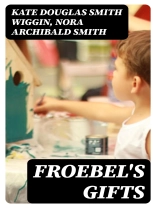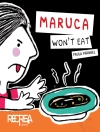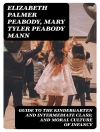‘Froebel’s Gifts’ is a rich anthology that delves into the educational theories and practices of Friedrich Froebel, framing them within a broader historical and pedagogical context. The collection spans a variety of literary styles, from reflective essays to interpretative narratives, each offering a unique exploration of Froebel’s gifts—playful, hands-on learning tools designed to nurture a child’s development and creativity. No one piece can fully encapsulate the depth of this anthology; rather, its strength lies in the diversity of perspectives that collectively spotlight the enduring relevance of Froebel’s educational philosophies. Kate Douglas Smith Wiggin and Nora Archibald Smith, both renowned for their contributions to children’s literature and early childhood education, curate this anthology with a keen understanding of Froebelian principles. Their collaborative effort is reflective of the early Progressive Era in education, which emphasized child-centered, experiential learning. This collection is not only a testament to their individual achievements but also a broader reflection of innovative pedagogical movements that have shaped modern educational thought. For educators, historians, and anyone interested in the evolution of teaching methods, ‘Froebel’s Gifts’ offers an invaluable repository of insights. The anthology invites readers to engage with its diverse array of contributions, fostering a comprehensive dialogue around child development, creativity, and learning. It stands as a significant resource for understanding the roots of educational thought and its practical implications, encouraging a deep and nuanced appreciation of how varied perspectives converge to enhance our grasp of Froebel’s lasting impact.
عن المؤلف
Kate Douglas Smith Wiggin (1856–1923) was a revered American educator, author, and reformer of children’s education in the late 19th and early 20th centuries. An ardent advocate for kindergarten and early childhood education, her literary contributions extended beyond pedagogy into the realm of children’s fiction and adult novels. Perhaps her best-known work is the classic children’s story ‘Rebecca of Sunnybrook Farm’ which continues to enchant readers with its depiction of youthful resilience and optimism. In her educational text ‘Froebel’s Gifts’ (1895), Wiggin delved into the educational philosophy of Friedrich Froebel, the founder of the kindergarten movement, illustrating how the use of simple educational materials could profoundly influence a child’s development. Her writing style often reflected her educational ideals, characterized by a belief in nurturing the hearts and minds of children through engaging storytelling. Wiggin’s commitment to pedagogical advancement led her to pen several influential works on the subject, including ‘The Story of Patsy’ and ‘Kindergarten Principles and Practice’, further shaping the discourse on early childhood education. In addition to her educational and literary contributions, Wiggin also co-founded the first free kindergarten on the West Coast of the United States. Her books, distinguished by their warmth, humor, and vivid characterizations, remain a testament to her legacy as an innovator in children’s literature and education.












